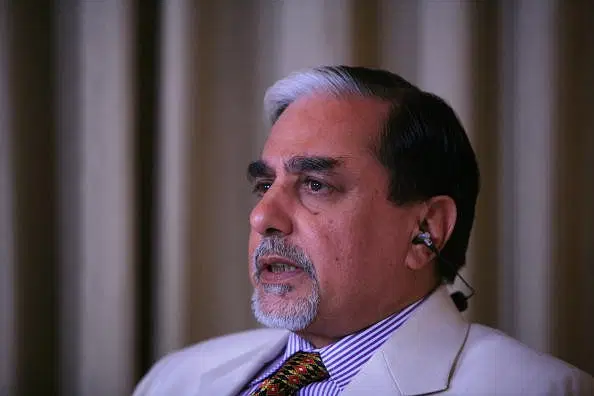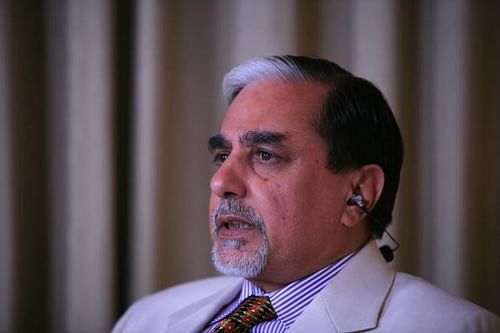
Why all Indian sports should be thankful to Kapil Dev and the ICL
The ads for the Pro Wrestling League are being aired on TV. The Haryanvi accent mocking men and women who have gone soft and need to be made ‘fauladi’ is enticing.
The contests have been exciting so far, given Indian wrestlers who have exceeded expectations at every sporting event in the last decade, their few moments of spotlight – moments that were until a few years ago proprietary to the cricketers alone – and until a decade ago, were proprietary to international cricketers alone.
The genesis of domestic sports’ leagues
Indian sports broadcasting has seen a sea of changes in the past half a decade. Pro Kabaddi was a major hit with the Indian audiences, highlighting how exciting the game which India dominates could really be.
The Indian Super League (ISL) and IPTL (International Premier Tennis League) are into their second season too, giving the large hordes of Indian football and tennis fans something to cheer about, something that allows them to grow their affinity to home teams, instead of fighting over faraway entities like the English Premier League (EPL) and the La Liga that they have traditionally followed or tennis superstars from faraway shores.
A lot of teams in Pro Kabaddi, Pro Wrestling and ISL are owned by celebrities including Ranbir Kapoor, John Abraham and Abhishek Bachchan with cricketers like Sachin Tendulkar, Sourav Ganguly and Virat Kohli buying stakes in teams from non-cricket leagues.
If IPL is one of the major causes for revolutionising sports broadcasting in India, aimed at tapping the potential in the second most populous country in the world, the credit at some point must be given to the Indian Cricket League (ICL) and thereby, to its figureheads Zee Sports’ Subhash Chandra and Kapil Dev.
Had the ICL not succeeded, the IPL wouldn’t have ventured into that world and had the IPL not revolutionised T20 cricket, spawning a bunch of other leagues around the world, Indian sports broadcasting wouldn’t have given its viewers such a diverse platter of sporting events today.
Short-lived hero of the pre-IPL era
The first one to jump through the fire generally gets the burns. The world learns from the mistakes and adapts. The Indian Cricket League in many ways was one of the first to dabble with domestic T20 competitions in India, supported by Essel and hence, in turn, Zee Sports, with Zee looking for sports content on its channel after being repeatedly thwarted by the biggies.
The result was interesting for cricket fans, and thanks to the massive payday varying between 50,000 to 150,000 pounds, it managed to attract many a cricketer. Subhash Chandra of Essel pulled off a rebellion much like Kerry Packer, who started the World Series, which initially dubbed a circus became one of cricket’s most enthralling stories producing brilliant cricket and entertainment.
ICL was helmed by none other than Kapil Dev, India’s first superstar cricketer and a man who would have ruled T20, being a cricketer way ahead of his times. Much like the World Series, ICL had to fight against the full might of giants, in this case, the BCCI and, therefore, the ICC.
Unrecognised by the Board, which had its own plans, ICL still went ahead and showed how T20 broadcasting can revolutionise sport. The crowds and the interest levels later led to the IPL and a host of other leagues, packaging live broadcast of adrenaline-pumping sport at prime-time.
ICL managed to sign some great cricketers including Glenn McGrath, Inzamam-ul-Haq, Shane Bond and Brian Lara. Without support from the Board, the League went ahead with just one stadium in Panchkula outside Chandigarh. Although many people foretold ICL’s demise, that it managed to pull off two seasons was a wonder in itself.
Subhash Chandra’s Chanakya Oath
Like Chanakya, who had vowed to overthrow the king who insulted him, Essel’s Subhash Chandra was a visionary who was repeatedly wronged. His first unfair defeat was way back at the beginning of the millennium when Subhash’s Zee Sports wasn’t given the ICC World Cup rights despite bidding the highest amount.
This continued event after event, year after year, with BCCI ignoring him as well. The reasons Zee Sports lost out included weird ones like its lack of experience in sports marketing or its qualification as a special broadcaster.
Eventually, Subhash went ahead with his own rebel league to create the content that he was unable to win through bidding alone, entangled in a long legal war with the BCCI and ESPN Star Sports.
Subhash started the rebel league in late 2007 and succeeded in implementing the idea with the help of Kapil, who along with the other board member Kiran More, ended up being amongst the few cricketers to miss out on BCCI’s one-time pension benefits for ex-cricketers.
Format and demise
The ICL should be credited for the idea of bringing in foreign players and making them compete with local talent. It was a novel and noble idea considering, until then, a lot of domestic cricket players in India, neither had the exposure nor the financial backing that their talent and careers needed.
ICL had nine teams including Lahore Badshahs, a team from Pakistan and Dhaka Warriors, a team from Bangladesh. Chennai Superstars won the inaugural season while Lahore won in the second season.
However, trouble started when players had to virtually take the risk of ending their careers to continue playing for ICL. In fact, the whole farce ended a few careers, especially after ICL players were banned from playing for their country.
The death knell for ICL came when BCCI and hence other boards, offered amnesty to all the ICL players who lost their registration leading to everyone opting out of the ICL contracts in 2009.
The IPL had started and the rest is history. Ambati Rayudu is one of the most famous names to emerge out of that amnesty and claim fame in the IPL. Eventually, even Kapil quit the ICL to accept the BCCI amnesty, thereby becoming eligible for the benefits that the Board offered.
Conclusion
The ICL committed just one fault – it went against the giants – and was hence taken down by the giants with all their might. But the ICL became the successful trial that helped leagues like IPL sprout all over the globe.
It also demonstrated the profitability of such leagues in India, a nation that until the IPL, hadn’t really had its full share of sporting coverage. The IPL, mixing celebrities with sports, turned out to be a huge hit the subsequent year.
It is sad and unfortunate that the ICL didn’t get its due credit. But Subhash Chandra along with Kapil managed to pull off the event despite numerous hurdles with extreme positivity. For that alone, they should find their name in the pantheon of modern Indian sports broadcasting.
